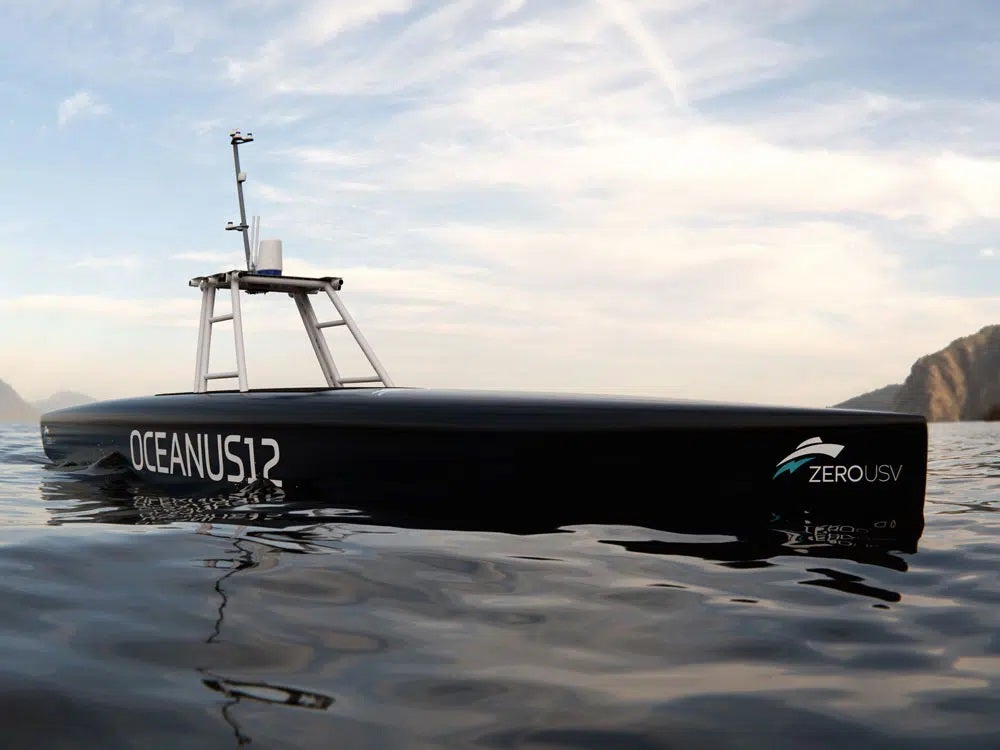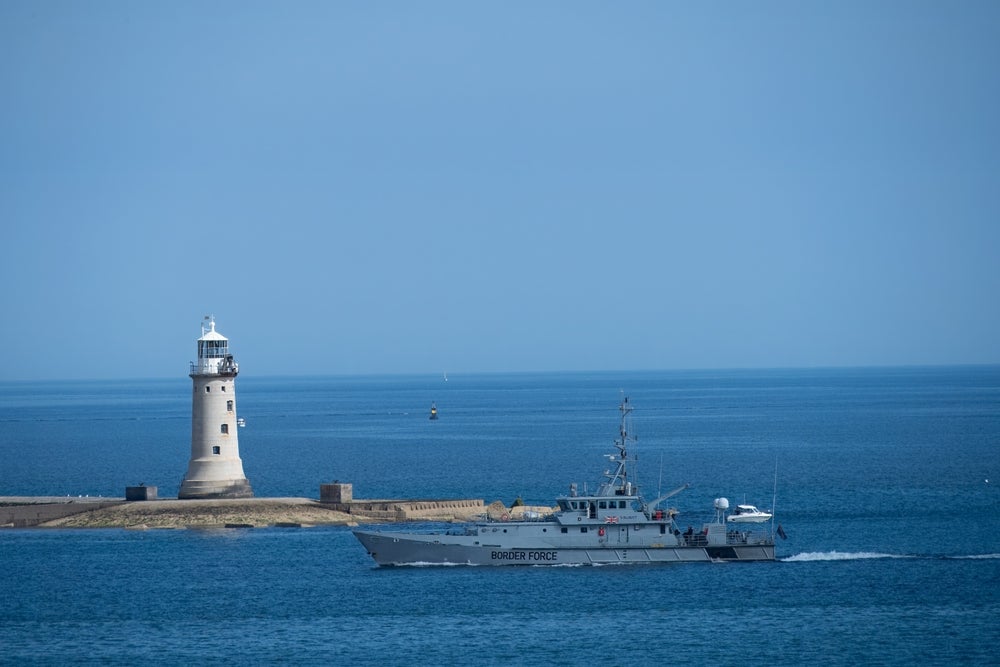As the UK government and other organisations face ever-greater threats to our borders, the limitations of traditional security measures are increasingly clear. Organised crime syndicates are probing for weaknesses, looking for new ways to smuggle people, drugs, weapons, and even trafficked wildlife into the UK.

Illegal boat crossings dominate the headlines and have become a daily occurrence, and alongside these issues are growing concerns over overfishing, piracy, and the possibility of state-sponsored terrorism targeting critical maritime infrastructure.
Traditional methods of surveillance such as manned boats, helicopters, and aircraft, are no longer enough.
A new age in border control
Paul Lincoln, former UK Border Force Director General, envisions technology as the backbone of future border security. In 2021, he highlighted the urgent need for government-industry collaboration to enhance information flow at control points, especially given the UK’s enormous port activity.
The UK port industry handles nearly 500 million tonnes of freight and more than 60 million passenger journeys each year. The sheer weight of this volume makes it impossible to monitor every shipment or traveller without introducing more innovative solutions.
Consider this: in 2020 alone, more than 15,000 firearms and 23,000kg of Class A and B drugs were intercepted at the UK’s borders. Criminal networks are becoming more sophisticated, constantly looking for new ways to evade detection, and if we don’t keep pace, we risk losing control of our maritime borders.
Underlining the priority of managing effective border security in the country, the UK Government’s 2025 UK Border Strategy sets out a vision for the nation’s border to be the “most effective in the world“. It promises a six-part strategy that includes amongst its objectives to establish resilient ‘ports of the future’ at border crossing points to make the experience smoother and more secure for passengers and traders.
Finally, there is the geopolitics of hostile nation states testing or interrupting critical national infrastructure, from data cables supplying the internet and telephony to oil and gas pipelines.
Enter the USV
Uncrewed Surface Vessels – or USVs – represent a transformative solution for maritime border control. Equipped with advanced cameras, radar, sonar, and infrared sensors, these vessels autonomously patrol vast ocean areas.
Without onboard crews and powered by high-endurance systems, they can operate continuously around the clock. In an industry needing 24/7 monitoring, this endurance is revolutionary.
Being crewless, USVs can cover exceptionally long distances and adapt to a wide range of mission types, while remaining operational at sea for weeks on end. They send real-time data back to coastal authorities, working seamlessly with law enforcement to provide constant surveillance and enhance national security.
The UK is not alone in recognising the potential of USVs. Armed forces in the United States, France, China, and other nations are already using these autonomous vessels to patrol their waters, intercept smugglers, and gather intelligence. As threats evolve, so too must the tools we use for dealing with them, and USVs represent a major leap forward in maritime operations.
The power of AI
At the heart of USVs lies artificial intelligence (AI). This transformative technology allows USVs to navigate autonomously and make real-time decisions without human intervention. They are equipped with algorithms that can detect, track, and classify potential threats, whether that’s an illegal boat crossing the Channel or a suspicious cargo vessel approaching UK waters.
I would argue that the speed and precision with which these AI systems can operate far exceed the capabilities of human crews in many instances, and they don’t get tired or fatigued!

USVs offer remarkable adaptability, handling tasks from surveillance to environmental monitoring and search-and-rescue. The Oceanus12 class, powered by Marine AI’s GuardianAI software, can operate in swarms, sharing intelligence for enhanced situational awareness. Machine learning continually improves their performance, making USVs invaluable assets in border security with cutting-edge, responsive maritime technology.
What’s more, USVs are more eco-friendly than traditional manned patrol boats. Without crew needs like food, water, and shelter, USVs have a lighter payload and can run on renewable energy, such as solar. This enables longer, more sustainable missions with lower emissions, aligning with the UK’s 2025 Border Strategy for efficient, sustainable border control.
Navigating challenges
While USVs face challenges in navigating busy shipping lanes and structural hazards, rapid advancements in AI and sensors are overcoming these. With compact edge-computing AI, USVs use mm-wave radar, sonar, and optical cameras to detect obstacles in real-time, making agile decisions based on ocean currents, weather, and surrounding hazards.
New low Earth orbit satellite networks like Starlink also allow USVs to maintain reliable connections offshore, supporting safe navigation and enhancing their operational effectiveness even in complex maritime environments.
As technology advances, I believe USVs will play a central role in UK border security. These autonomous vessels are already active, enhancing security at sea. They offer scalable, flexible solutions while reducing risks and costs associated with manned patrols. Their tireless operation, paired with lower environmental impact, makes them attractive for governments focused on security and sustainability.
As maritime threats evolve, USVs represent a new era of intelligence, efficiency, and innovation in border protection, shaping how we defend our shores for future generations.




